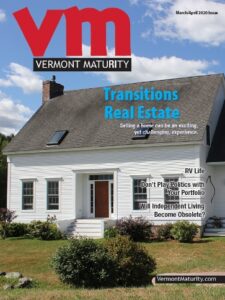When individuals, or couples, contemplate retirement, they need to run the numbers, then rerun them, then run them again. We’ve all done it far too many times. By the time we finally retire, we feel comfortable that the finances will work. But what we don’t give enough consideration to is inflation; the increasing cost of the things we pay for each day.
I expect to have at least 20 years of active retirement, years when my wife and I will be out living our lives, visiting family, enjoying our hobbies, traveling, going south in the winter, etc. All these things cost money. Lets think about what some of these things might have cost 20 years ago to give us some perspective on what they might cost 20 years in the future.
What was your phone bill 20 years ago compared to now?
What was the price of gas 20 years ago?
How much was a gallon of milk?
What was the price of a new car?
I don’t know the exact answer to these questions, and this is not very scientific, but it sure seems like things have about doubled. If they double again in the next 20 years, we’re in trouble. In fact, with the increases that we are likely to see in the next 5 years, that will throw cold water on some of our plans.
I have often heard seniors referred to as individuals on a “fixed income.” I am gaining a new appreciation for that term.
So, where’s the ace? ”Show me the money!”
If you own a home, you may have a fair amount of equity in the home. You may have a small mortgage or no mortgage at all.
I’m guessing that you did not factor in the use of that equity when you ran your number at the time of retirement. If you are at all concerned with your finances now or in the future, then you should consider using your equity to meet your growing expenses. It is your equity; you have earned it; you should use it.
This is done with a Home Equity Conversion Mortgage (HECM), also known as a reverse mortgage. It converts the equity in your home into cash available for your use. A HECM is a loan, but you do not have loan payments. The interest on the loan accumulates. Eventually, when you are no longer living in the house, the loan will be repaid when you or your heirs sell the house. The loan balance will essentially be the amount of money that you have used from the equity plus any accumulated interest. If the value of the house exceeds the loan balance, that equity belongs to you or your heirs. If the loan balance exceeds the value, you can never owe more than the home value.
You can take money from the HECM in several ways; you can take a lump sum, you can receive monthly payments as long as you live in the house, you can leave it available as a ‘line of credit’, or you can do a combination of these.
The amount that you can get from a HECM depends on:
1. age of the youngest person
(in the case of a married couple)
2. value of the house
3. amount of any existing mortgage that will be paid off with the HECM
In the chart on the next page are a few examples of how your income could be supplemented.
Besides inflation, another concern is the loss of household income. In the case of a couple, probably both are receiving social security, and maybe a pension. If one of the individuals passes away, then that person’s income will stop and the household income will go down. Many of the expenses of the household will continue, but the income will be less. So having a HECM in place may be a good way to be prepared to supplement your income, if needed for a variety of reasons.
There are lots of reasons why individuals, or couples, utilize a HECM, but contending with, or anticipating inflation should be high on the list. Your current retirement income may seem adequate, but will it be in 5 or 10 years? We should give future inflation more consideration when we run our numbers, and some of use are fortunate enough to have an ace up our sleeve.
This article was contributed by Ted Beebe.
 Related Articles & Free Subscription
Related Articles & Free Subscription
Aging In the Place You Want to Age
Straight Talk About Reverse Mortgages







Comment here